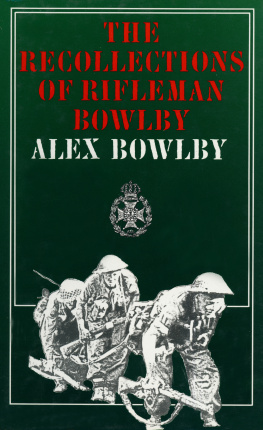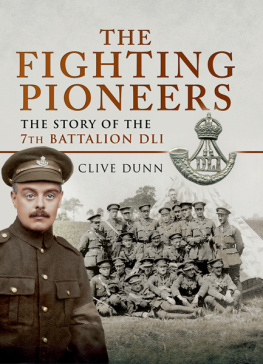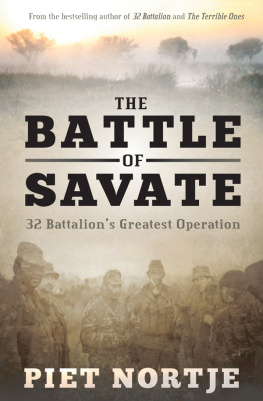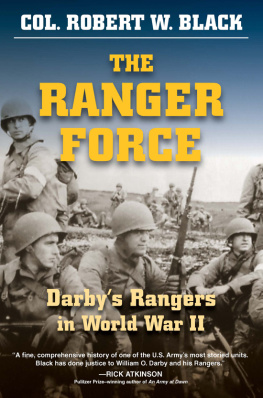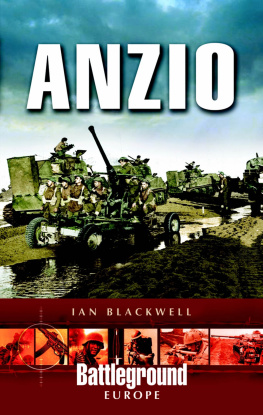Introduction
by
John Keegan
Recollections of Rifleman Bowlby belong to the genre of military literature known as a voice from the ranks. But with this difference: Alex Bowlby, though a genuine private soldier, who apparently never aspired to rise above the rank of Rifleman, was a gentleman. He was not, however, one of Kiplings gentleman rankers, one of those dclass Victorians who enlisted as a desperate escape from social failure in civilian life. War and conscription took him into the army and, once established in his platoon, he seemed content to share its company and observe and record the experience of fighting an infantrymans war from a worms eye view. The result, as the thousands of readers who have enjoyed his memoir since it first appeared in 1969 recognize, is one of the most unusual of all books about the British army in the Second World War.
Much of the books individual flavour is lent it by Bowlbys acute ability to catch and transmit the quality of life in the regiment he belonged to. The 3rd Battalion, as he identifies it, was not an ordinary infantry unit, but part of the Green-jackets, with a high proportion of pre-war regulars in its ranks. Greenjackets the Kings Royal Rifle Corps and the Rifle Brigade; Bowlby does not tell us which pride themselves on their independence, the initiative they encourage their NCOs and soldiers to cultivate, and the easy relationship between officers and men. These habits were first developed in the American War of Independence, for which the Greenjackets were raised as skirmishers and sharpshooters, but have been preserved the Greever since. A final and particular quality is lent to the Greenjackets by the territorial origin of their riflemen. The majority are Londoners, with the Cockneys quick wit, irreverence and street wisdom, all attributes which the Greenjacket spirit fosters.
The battalion which Bowlby joined had spent a long war fighting in the desert as the motorised infantry unit of an armoured division. When he came to it, however, it had transferred to Italy, lost its vehicles and was operating on foot in the hills and valleys of one of the most dangerous battlefields of the Second World War. The German enemy was of high quality parachutists and panzer grenadiers whom Hitler had rushed to Italy to rescue the German front there after the collapse of the Mussolini rgime in August 1943. Such men quickly learnt to exploit the defensive opportunities the Italian landscape offered and to inflict heavy casualties on all Allied soldiers who came against them.
By a quirk Bowlby missed his battalions worst battle of the campaign, a fight for a little hilltop town in the Gothic Line, called, by the Divisional commander when it was over a magnificent failure. It destroyed most of the company to which he belonged. This episode, though it comes at the end of the book, colours all that he writes about the men with whom he shared the hardships and dangers of the months before. In a sense the book is comedy; but Bowlbys skill is to indicate, from the moment he draws the reader into his narrative, that tragedy lurks at the end. It is this hint of doom lying over all the men to whom he introduces us that lends Rifleman Bowlbys recollections their bitter-sweet quality.
This is certainly not the last time that his book will be re-issued. With half a dozen others, it has become a minor classic of soldiers memoirs of the British army in the Second World War and will certainly be read as long as that war is remembered.
John Keegan
January 16, 1989
Foreword
A T the battle of El Alamein a battalion of a rifle regiment was attacked by a Panzer Division. Although caught in unprepared positions it gave no ground and destroyed or crippled fifty-seven tanks. General Montgomery sent a message of congratulation, and subsequent honours included a V.C., a D.S.O., and three D.C.M.s. The action set the seal to the Battalions Desert reputation. Equipped as a motor-battalion one of the original two in the 7th Armoured Division it had exploited its new role as brilliantly as Sir John Moores riflemen had exploited theirs. At Sidi Saleh the Battalion had cut round the rear of the retreating Italians, and supported by two batteries of the R.H.A. had held up the entire army. Enemy tanks penetrated as far as Battalion H.Q. before the attack collapsed. The Italian C.-in-C., General Bergonzoli, surrendered to a company commander. For the time being the Italian Desert army ceased to exist. And later, when Rommel swept back through Libya, the Battalion, whose first Desert C.O. was now commanding the Division, formed one of the flying columns operating behind the enemy lines, ambushing convoys and providing G.H.Q. with some badly needed good news.
Before the last push in Tunisia the grapevine hummed with the rumour that once the campaign ended Montgomery would take the whole of the 8th Army back to England. This went down particularly well with the Rifles. A regular battalion, some two hundred of its men had been abroad since 1937.
Tunisia fell. The Army re-grouped. Whilst the bulk of it received embarkation orders for Sicily and Salerno, but few knew that till they got there some units, including the Rifles, were told they were staying in Tunisia.
Rightly or wrongly the bulk of the Rifles felt they were being picked on. The officer in command at the time described their mood as restless. Whilst the battalion was getting over their disappointment as best they could, they were told that all the 1937 regulars were to return to England under a repatriation scheme. With a stroke of a pen the powers-that-be broke the battalion in two. The returning regulars were as bitter as the men they left behind. Deprived of a frightening proportion of its most experienced troops the battalion soldiered on. After a spell in Tripoli it moved backwards and forwards between Syria and Egypt, training hard for its next assignment. This turned out to be an unlikely one In April 1944 some Greek units stationed in and around Alexandria received embarkation orders. For political reasons they declined to obey them. The 3rd was used to disarm the Greeks, and then sent to Italy, along with another battalion of the Rifles, in their place.
On landing at Taranto it was equipped with new vehicles. A fortnight later it made its way to the Adriatic front. Twelve hours before being committed it was ordered to cut across Italy and harbour at Capua, north of Naples. When it reached Capua most of its vehicles were taken away. Italy had suddenly become unsuitable for motor-battalions, and the Battalion was to be used as ordinary infantry.
A mechanized infantry unit whose fighting vehicles Bren-gun carriers and fifteen-hundredweight trucks enabled it to operate at a range and speed far beyond that of lorried infantry.

